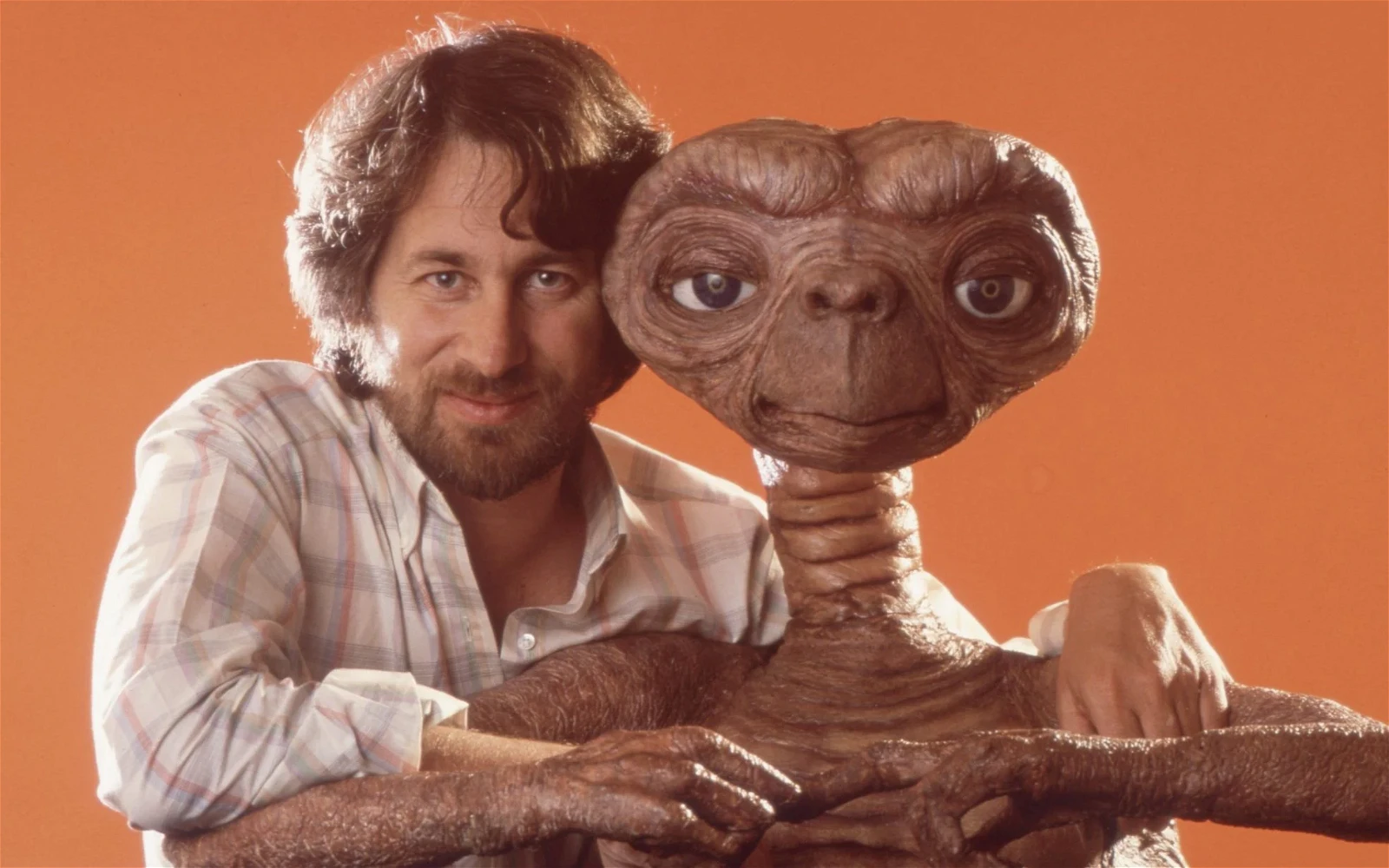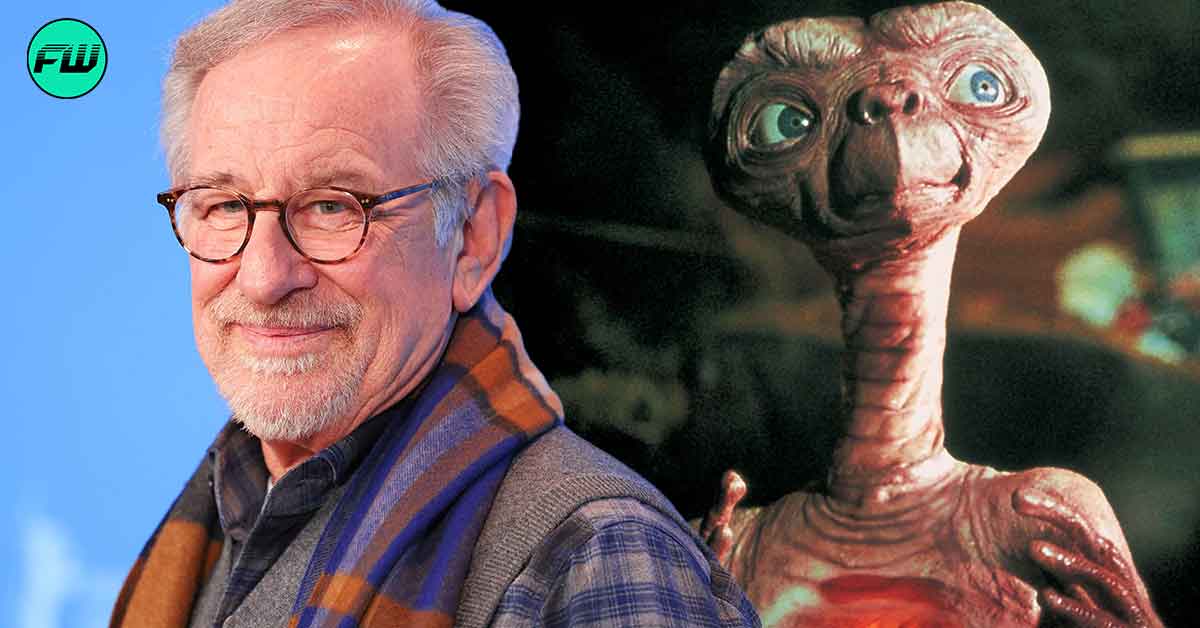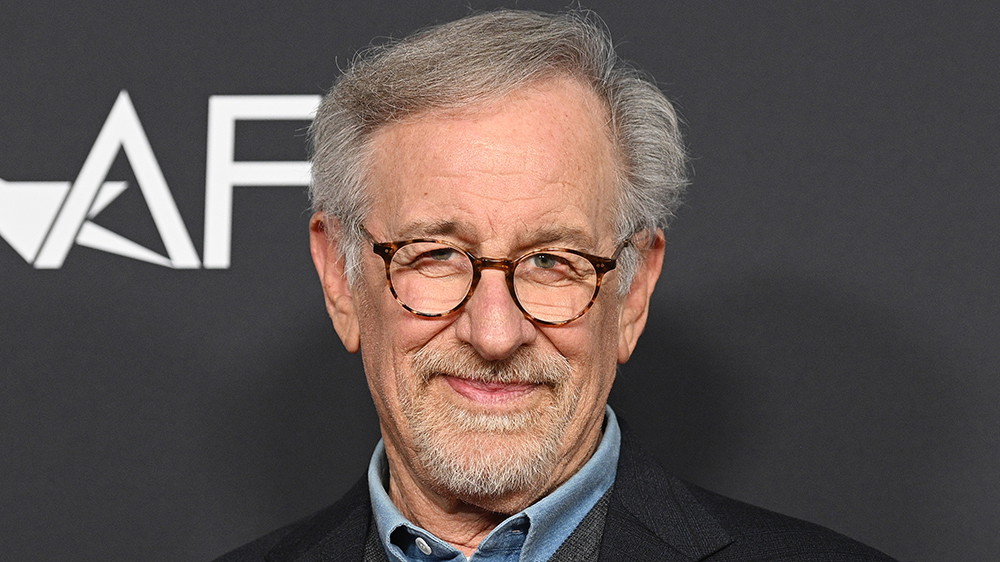Since its release in 1982, Steven Spielberg’s E.T. the Extra-Terrestrial has been hailed as a cinematic masterpiece and a cultural icon. However, the Oscar-winning director has stated his dissatisfaction with certain alterations to the film.
Changes made to the film for its 2002 digital remastering and special edition release, such as the federal agents’ shotguns being replaced with walkie-talkies, were met with backlash from the film’s devoted audience. Steven Spielberg realizes he made a big mistake by messing with his films’ archives.
E.T.: The Iconic Film That Needs No Introduction

One of the most memorable films ever made is E.T. the Extra-Terrestrial. The book recounts the adventures of a young boy named Elliot as he befriends a stranded alien and attempts to assist the alien in his quest to return to his home planet.
Suggested Article: “Guess I didn’t explain myself correctly”: John Cena Will Never Leave $6.5B Franchise Despite Fast and Furious, DCU Bragging Rights
Fans of feel-good stories about friendship and adventure flocked to theatres when the film was released. Both critics and audiences loved the film, which grossed $797 million worldwide and held the record until Jurassic Park came along in 1993.
In addition to its four wins, including Best Original Score and Best Visual Effects, E.T. received nine nominations for Academy Awards.
Steven Spielberg’s Decision To Digitally Remastering
In 2002, a digitally remastered and slightly altered special edition of E.T. the Extra-Terrestrial was released in theatres and on DVD. The alterations were improved visual effects and selective cutting of more adult material.
In a pivotal scene, federal agents’ use of walkie-talkies instead of shotguns was one of the most contentious alterations. Fans were upset because they felt the film’s authenticity had been compromised by the change, even though it was made out of consideration for the fact that the agents were chasing children.
Steven Spielberg has since admitted that he should never have tampered with the archives of his own work and that this alteration was a mistake.
“That was a mistake. I never should have done that. ‘E.T.’ is a product of its era. No film should be revised based on the lenses we now are, either voluntarily, or being forced to peer through. I should have never messed with the archives of my own work, and I don’t recommend anyone do that.”

Since films record who we were and what happened when they were made, he thinks we shouldn’t change how we look at them now.
“All our movies are a kind of a signpost of where we were when we made them, what the world was like and what the world was receiving when we got those stories out there. So, I really regret having that out there.”
The remastered version of E.T. the Extra-Terrestrial has been criticized, but the film is still widely regarded as a classic. Audiences of all ages can relate to the plight of the lost alien in this tale of a young boy who becomes his guide home. Despite being released all the way back in 1982, the film’s message of unconditional love and acceptance rings just as true today as it did then.
E.T. the Extra-Terrestrial is well-known for more than just its inspiring message; the film’s visual effects are also impressive. Animatronics and puppetry were used to bring E.T. to life in the film, marking a significant technical achievement at the time. John Williams’ score for the film is also among the most famous and beloved in cinema.
E.T. the Extra-Terrestrial is available to stream on Amazon Prime Video
Source: Time’s 100 Summit
Also Watch:


